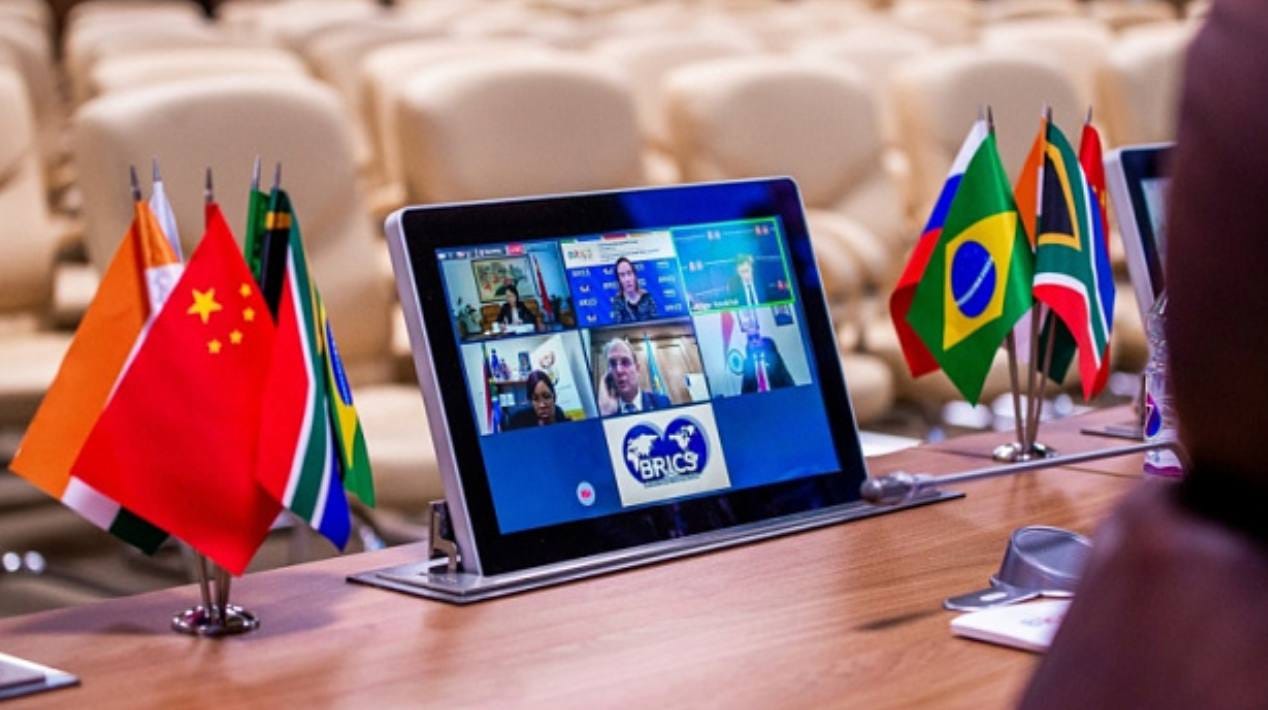O'Neill Advocates for BRICS Enlargement, Contesting Dollar Supremacy
Rigorous entry prerequisites necessary: Former Goldman lead economist Concentration on eco-finance, augmenting commerce, and wellbeing is essential.
Jim O'Neill, erstwhile Goldman Sachs Group Inc. principal economist and creator of the BRIC acronym, posited that the assemblage of countries adopting said designation ought to broaden and strive to contest the dollar's preeminence.
In a treatise disseminated within the Global Policy periodical dated March 26, O'Neill exhorted the coalition to implement stringent guidelines guaranteeing that any prospective affiliates bolster the collective's objectives. Additionally, he advocated for an emphasis on ecological financing, enhancement of healthcare, and commerce fortification.
"The US dollar wields undue influence over global fiscal matters," O'Neill penned. "The Federal Reserve Board's monetary policy shifts, whether constricting or relaxing, have yielded considerable consequences on the dollar's worth and reverberating effects."
BRIC's establishment materialized in 2009, comprised of Brazil, Russia, India, and China. South Africa's inclusion in 2010 prompted a rebranding to BRICS. O'Neill contended that incorporating other "nascent nations with unrelenting surpluses" could facilitate a more equitable, multicurrency global arrangement.
He maintained that the dollar's supremacy renders the encumbrance of dollar-denominated liabilities for other countries vulnerable to fluctuation with the exchange rate, thus unsettling their monetary policies. Consequently, the greenback's oscillations usurp the impact of domestic determinations.
Nonetheless, the economist warns that solely those nations satisfying the original conditions of substantial populations and considerable economies with notable potential merit admission. He repudiates South Africa's inclusion, as it represents the most diminutive BRICS nation.
"If BRICS' primary objective constitutes symbolism, as it frequently appears, attracting other large-population emergent nations is justifiable," O'Neill articulated. However, if economic intent prevails, "the criterion for incorporating new members must be targeted”, he composed in the piece entitled The Future of the BRICS and the New Development Bank.
O'Neill asserted that the alliance's aspirations should encompass attaining a more robust presence in global institutions, such as the World Bank and International Monetary Fund. Despite representing 42% of the global populace, BRICS members wield under 15% of the voting rights in the two financial institutions, as indicated by the Pretoria-based Institute for Security Studies.
BRICS anticipates resolving the issue of new member admissions and the associated criteria in the current year, according to Anil Sooklal, South Africa's ambassador to the bloc. Approximately a dozen countries, including Saudi Arabia and Iran, have conveyed interest in joining the alliance.
Prospective Contenders O'Neill posited that viable new members must possess populations exceeding 100 million. Asian countries, such as Indonesia, Bangladesh, Vietnam, Pakistan, and the Philippines, could be deemed suitable candidates. Other possibilities include Mexico, Turkey, Nigeria, Egypt, and Ethiopia. Saudi Arabia and Iran would only be logical inclusions if the alliance sought to establish a counterbalance to the dollar, as they represent two of the world's foremost oil producers.
However, an expanded coalition might hinder collaboration, which is already precarious.
O'Neill contends that both BRICS and the New Development Bank, established in 2014, have overlooked numerous opportunities.
China and India, BRICS' largest constituents, have demonstrated minimal commitment to fostering robust trade relations. The NDB could have received, and still might obtain, a powerful mandate to finance alternative energy combating climate change. All five BRICS nations rank among the top 14 global greenhouse gas emitters, with China constituting the most substantial individual contributor.
If unambiguous objectives are achieved, "BRICS expansion would not only be judicious but should be embraced by all, including the conventional powers," O'Neill declared.





